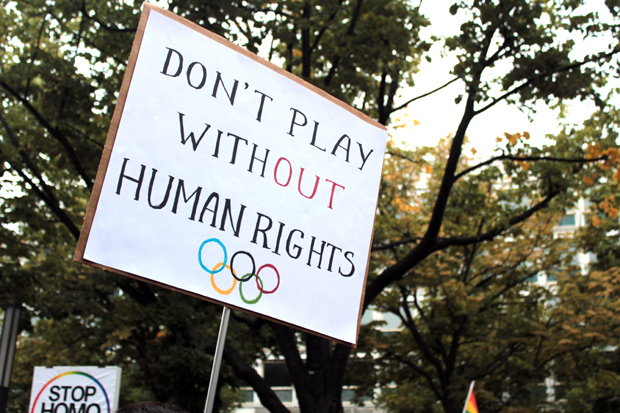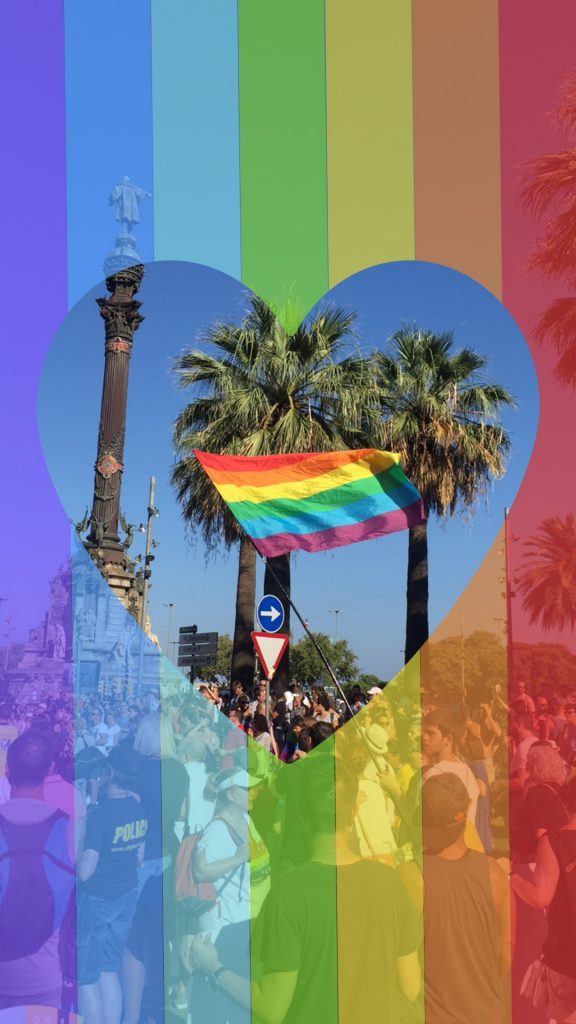When the Olympic games premiered earlier this month in Brazil with the Opening Ceremony, gay Twitter lit up with talk of a single flag bearer. You probably know the one.
The Parade of Nations is one of those inspiring moments of the games—a moment when the world seems to drop all of its barriers and borders. Tonga is a small country, one that’s only ever won a single medal in the Olympics.
What stood out, however, from the online buzz about the Tonga flag bearer, were the repeated commentary about looking for flights to the small country in Oceania. The Olympics have this funny way of inspiring interest in foreign countries and Tonga’s oiled up flag bearer brought out this desire in a lot of people.
Especially on gay Twitter.
I was curious, though, and looked up the LGBT rights in Tonga knowing that one of the country’s seven athletes competing this year is the openly gay swimmer Amini Fonua (of just an estimated 53 LGBT athletes competing in Rio, according to OutSports).
Tonga is not gay-friendly. Male homosexuality is illegal and carries a maximum penalty of 10 years in prison and whipping. So, with gay Twitter on fire, I have to ask: would you visit Tonga knowing its’ harsh stance on LGBT rights?

And then there was the buzz and subsequent fallout from an article that went live on The Daily Beast. The article essentially outed several gay Olympians—ones from severely homophobic countries. It was dangerous, reckless and the tone of the article was surprisingly antigay.
I saw it, read the original version before it was updated and followed along as the editor updated and then eventually apologized until the article was ultimately removed from the site.
My whole gay world around me, friends and journalists, other bloggers and news columnists, Olympians and LGBT celebrities—we all shared it, we all were angry.
But I wonder: if you’re not gay, did you see it? Did you see the danger of it?
This year’s Olympic Games were probably the most gay since the naked ones of Ancient Greece. (Watch this video from The Try Guys to get an idea of what they sort-of used to be like…)
* * *
To be gay is to be marginalized. I’m a part of a minority. I know that. I’m out here on the fringe. It’s part of what I love about being gay, or being queer.
(It’s practically part of the word’s definition.) But to be continually marginalized, that’s a challenge. Take the Olympics as an example again: out of over 11,000 athletes from around the world, just 53 were out as lesbian, gay, bisexual or transgender.
Just 53 out of 11,000.
That’s a dismal number, and proof that even among the most celebrated humans from every country, there are only so many willing to live out of the closet. That’s because there are still over 70 countries which persecute people for being gay or lesbian.
I’m not sure if I’m just more aware of the world around me, or if this year has truly been an unsettling one for LGBT people.
The Orlando attacks earlier this summer shocked me in a way I didn’t think was possible. The emotions I felt after that attack were strange ones—I was sad, angry, scared, annoyed and proud all at once.
So many of my gay friends and acquaintances like to point out the fact that their sexuality doesn’t define them wholly
And while that’s true, I do think my sexuality is a big part of who I am. It’s not the only thing about me, of course, but it is a big part of me. In fact, my sexuality affects more about me than I probably would admit in public
And while sometimes I just want to drop the whole gay thing (NOT to not be gay, but to not have it affecting every bit of who I am), I just can’t.
My gayness, my queerness (and really: that’s a word I prefer) is me.
There aren’t many instances where I’ve let my sexuality hold me back from experiencing something new.
I don’t often wear my sexuality on my sleeve (if I’m wearing sleeves) and I’m not particularly camp, but I sometimes catch myself with those identifying gay characteristics: the limp wrist, the high voice.
Maybe the occasional Beyonce song lyric slips through. Generally, my queerness is accepted—it passes as normal.
There’s been a movement recently—a movement to take back this word “queer” and own it with pride.
While it was used for a long time as a derogatory term for LGBT people, today many LGBT youth have taken it back, identifying with a certain queerness, or difference, from mainstream and heteronormative culture.
This change was most noticeable in a masthead change at The Huffington Post when they changed their LGBT blog’s title from Gay Voices to Queer Voices—not without a fair share of think-pieces and controversy among their fans.

Personally, I love the fact that I’m different, that I’m queer. I think a part of what makes us human is our differences, whether that comes through our sexuality, gender, or even whether we’d rather spend our evenings reading books or watching Netflix.
However, even when I don’t really see myself as different from others because of my sexuality, there are times when I might encounter people who do see me differently.
This year started out with homosexuality almost being so passé that it was boring. I think that’s what led to the resurgence of the queer identity earlier in the year.
And yet, with recent events (including The Gayest Olympics which still weren’t very gay), this year has just continued to prove how much more there is still to do.

Adam, I identify as gay, or queer, as much as any hetero person identifies as straight. It IS a big part of who I am. A straight man proclaims his heterosexuality every time he casually speaks of, kisses, or take the hand, of his wife or girlfriend. My gayness, or queerness, is how I view the world. I noticed its handsome men, I have want for the rights I don’t get to share in, and I see from the outside in, much that my straight brothers take for granted. My sense of awareness is that of someone who hears the homophobia in jokes at the gym. I see the stares of disapproval should I reach for my boyfriend’s hand. My identity as gay, or queer, is what roused me to click your article. My identity IS a big part of who I am, and I’m happy about it. It’s as big a part of who I am, as society makes it necessary. In the mean time, I stand tall, stand proud, and won’t stand for anything less than equality. Today’s generation of gay men, and perhaps the next, bear the burden of stares and whispers while kissing, and holding the hands of our boyfriends, until it doesn’t need to be an identifier of who we are.